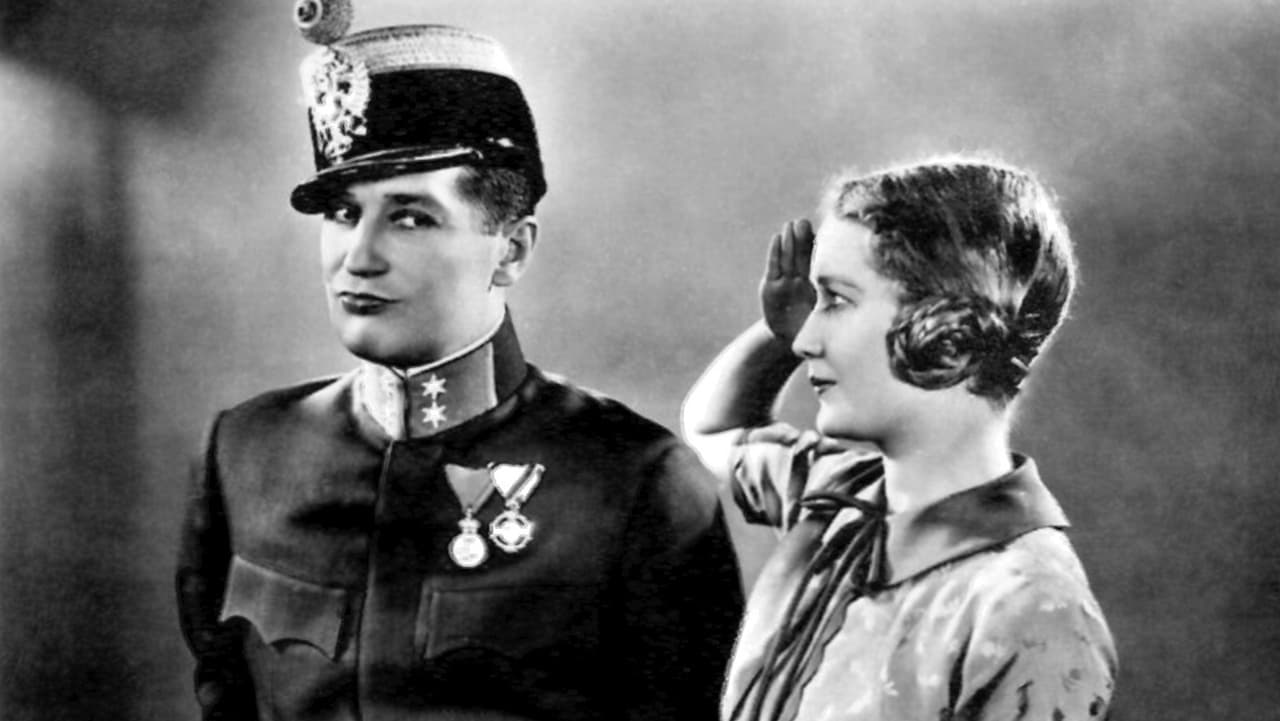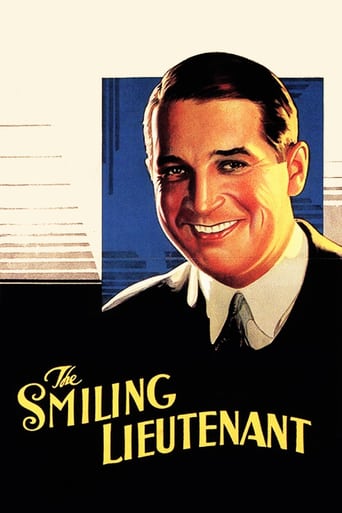Beystiman
It's fun, it's light, [but] it has a hard time when its tries to get heavy.
Staci Frederick
Blistering performances.
svaihingen
In this film, Maurice Chevalier plays Danny Zuko, Claudette Colbert plays Rizzo and Miriam Hopkins plays Sandy in a delightful musical comedy in which the square Sandy gets a sexy makeover from a bad-girl Pink Lady and wins the heart of the bad-boy smiling lieutenant of the Thunderbirds.OK, OK, it's not a perfect analogy, but watch the last few minutes in which Sandy, er, I mean Princess Anna, learns to dress sexy, smoke cigarettes seductively and dance - and tell me it's not, at root, the same story.The plot develops differently, of course. Prince Niki (a name like Zuko that follows the consonant-vowel-k-consonant format) is a prince and lieutenant, as opposed to the captain of a notorious gang. And it's Rizzo, er Franzi, (both names follow the r-vowel-z-vowel format) who gives Sandy (Princess Anna - if you say it fast, it sounds almost like Princesanndy) her makeover instead Franzi's pal Frenchy. Come to think of it, Claudette Colbert who plays Franzi is a real-life Frenchy, so perhaps the analogy is closer than I first thought.A great pre-code sexy musical comedy that may, just may, remind you of Grease.
mark.waltz
An army lieutenant (Maurice Chevalier) finds love in two completely different places-a cabaret and the palace. In this fictional European country (with a funny name that the country folk can't even pronounce!), the king's daughter (Miriam Hopkins) falls in love with the King's bodyguard (Chevalier), unaware that he is very much in love with the violin player (Claudette Colbert) of a popular girl's orchestra. But when you're the princess, you can get what you want, and she pleads with papa to get permission from the Holy Roman Emperor to marry the lieutenant, whether he likes it or not."Hi, Emp!", the King gleefully says to the Big Man of Europe (after the pope...), getting permission, and stunning Chevaliere into silence and Colbert into tears. But this edict won't make Chevalier consummate the wedding night, so Hopkinsfinds herself playing checkers with papa after Chevalier tells her that you never wink at a husband, only a lover or mistress. "Schnitzel to you!", he adds to the king, heading right back to Colbert.This is motion picture operetta at its best with a pleasant musical score, rhythmic dialog, and enough sexual innuendo to fill up legal documents by the volumes had it been made after the code. Paramount filled several movies with fictional European countries, so when Groucho Marx became dictator of Fredonia in 1933's "Duck Soup", he had a lot of material to spoof. Hopkins transforms from an impish brat into sexy vamp, getting rid of those Princess Leia like rolls on the side of her head when Colbert (in her second film with Chevalier) is charmingly alluring. And when Colbert get together to sing a duet about lingerie, it turns into magical movie heaven.
evanston_dad
I think I've seen my fill of Ernst Lubitsch's early movies starring Maurice Chevalier.I discovered Lubitsch's later films -- "Ninotchka," "The Shop Around the Corner," "To Be or Not to Be" -- first, and instantly fell in love with them. Now, watching his earlier works, it's clear that he matured as a film-maker. His early musicals are all right, I suppose, if you're in the mood for them, but they're missing the trace of sweet melancholy that make his later films so unique.But mostly, I've discovered that I just dislike Maurice Chevalier. He's so effeminate and just so, well, creepy, that I have trouble enjoying the movie around him. In "The Smiling Lieutenant," he's nearly always on screen, but one of the only times he's not, during a musical number in which Claudette Colbert and Miriam Hopkins sing about spicing up Hopkins' wardrobe of lingerie, ends up being the highlight of the film.Grade: C
Terrell-4
"Shall I see you again?" asks Lieutenant Niki von Preyn (Maurice Chevalier). "Oh, I hope so," says Franzi (Claudette Colbert), the luscious and liberated young violinist and leader of an all-girl orchestra in Vienna. Niki met her an hour or so ago at an outdoor biergarten. "When?" "Well, perhaps tomorrow night. We could have dinner together," she says "Ohhh…don't make me wait 24 hours. I'm so hungry!" "Well then…perhaps we could have tea…tomorrow afternoon." "Why not breakfast…tomorrow morning?" Niki suggests with a smile. "No, no. First tea…then dinner…then…maybe…breakfast." The scene fades out with a kiss…and the next scene opens with a shot the next morning of two eggs being fried.It is apparent that Franzi and Niki are delighted with each other. But then Niki, called to duty as the captain of the guard while the King and Princess Anna (Miriam Hopkins) of Flausenthurm are welcomed into Vienna with a grand procession, smiles and winks at Franzi from across the cobblestone street…just as the king and princess pass by in their open coach. Wouldn't you know it, Princess Anna thinks Niki had the temerity to flirt with her. She's outraged. The king says Niki must be punished. But when they meet, Niki's charm does the trick. Except now Princess Anna, who only knows of life and love from an encyclopedia where all the good parts were removed, is determined to marry him…and believes Niki loves her. When she threatens to marry an American if she doesn't get her way, her father, the king, decides he must agree. His little Anna is in love. Duty, honor and the Emperor dictate that Niki must marry the princess. But with the marriage, where does that leave Franzi? And after the marriage, for that matter, where does that leave Niki?Well, if anyone could make a light-as-air, amusing and naughty operetta about joyous sex and then performance resistance, which includes viewing a variety of inviting-looking beds, Ernst Lubitsch is just the director. There's a slightly bittersweet but essentially happy ending, of course, even if Niki stays married. "Girls who start with breakfast usually don't stay for supper. Take care of our Niki," says Franzi to Anna…but only after advising the princess in song about the secrets of keeping a man happy and active...namely, to jazz up your lingerie. Chevalier and Colbert do expert jobs to keep this plot moving so quickly and charmingly that we don't have time to think too much about it. For me, however, Miriam Hopkins just about steals the movie. She's innocent and sly, spoiled and naive and somehow is able to be all these at the same time. We know what we're getting with Chevalier and Colbert. We delight in it. Hopkins, however, surprises us and makes us laugh every time she appears. Her line delivery is a work of art. Hopkins had an unsatisfactory career in Hollywood, and it's our loss. Enjoy her skill and style in Trouble in Paradise and Design for Living, both directed by Lubitsch. They were at the top of their game, both of them, and that's saying a lot.

